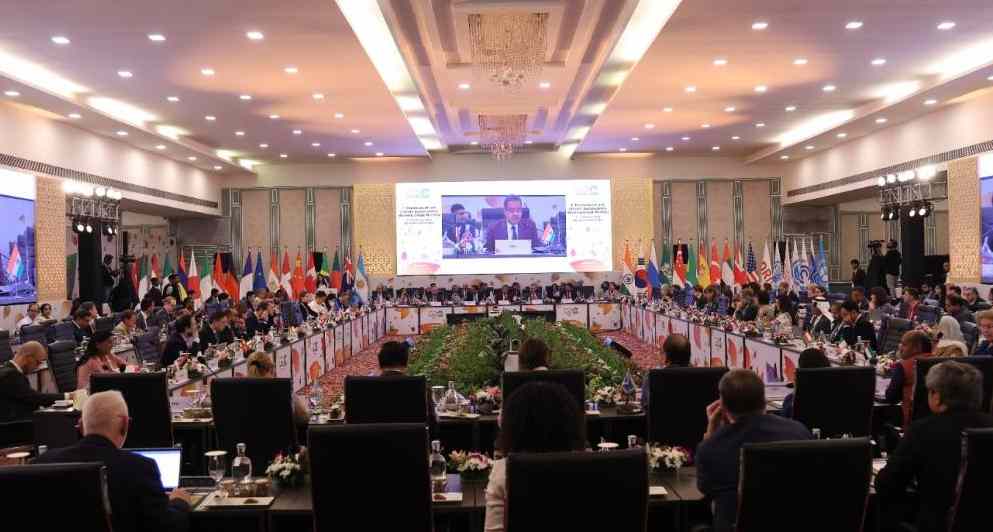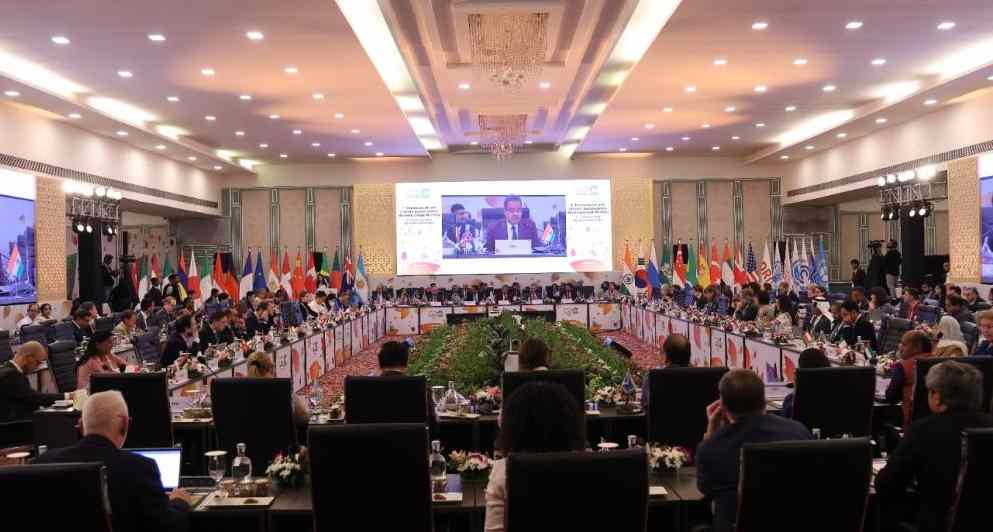India
Bengaluru hosted the first G20 Environment and Climate Group meeting
Published
1 year agoon

The Environment and Climate Sustainability Working Group, one of the Sherpa track’s13 working groups,will meet four times between February and May ( Bengaluru hosted the first G-20 Environment and Climate Group meeting )
On Thursday, February 9, the first Environment and Climate Sustainability Working Group (ECSWG) meeting under India’s G20 presidency began in Bengaluru. The group’s primary goal is to restore mining and forest fire-damaged areas. The Environment and Climate Sustainability Working Group, one of the Sherpa track’s 13 working groups, will meet four times between February and May.
The first meeting, which is currently underway in Bengaluru, will last until February 9, the second in Gandhinagar (March 27-29), the third in Mumbai (May 21-23), and the fourth in Chennai (May 26-27). The ministerial meeting is scheduled for July 28 in Chennai. The four ECSWG meetings during India’s G20 presidency will address key environmental concerns such as land degradation, biodiversity loss, marine pollution, resource overconsumption, and waste absorption.
Read Also: On Mars-NASA’s Curiosity Rover discovers the clearest evidence of water
According to a presentation shared by the Union Environment Ministry, India aims to increase G20 contributions under the Biodiversity and Land Degradation Theme in order to achieve a 50% reduction in degraded lands by 2040. It also aims to strengthen global efforts to promote growth and development while pursuing ambitious climate goals. India has pledged to restore 25 million hectares of land and sequester an additional 2.5 billion tonnes of carbon dioxide by 2030.
AS Rawat, Director General of the Indian Council for Forestry Research and Education, spoke at the meeting about global perspectives on eco-restoration issues in mining and forest fire-affected areas. G20 representatives shared their experiences and best practises for restoring mining and forest fire-affected areas.

You may like
-


North Korea asserts that the test of a multiple-warhead missile was successful
-


The Student Wing of Congress storms the Exam Body NTA office and locks it from within
-


“During President Murmu’s address to Parliament, PM Modi was shown 73 times, and LoP Rahul Gandhi was shown six times”: Congress
-


NASA contracts Elon Musk’s SpaceX to deorbit the International Space Station in 2023.
-


A Caution For The CBI In The Delhi Court’s Arvind Kejriwal Custody Order
-


Bar Council of India requests that bar associations abstain from demonstrating in opposition to new criminal laws

